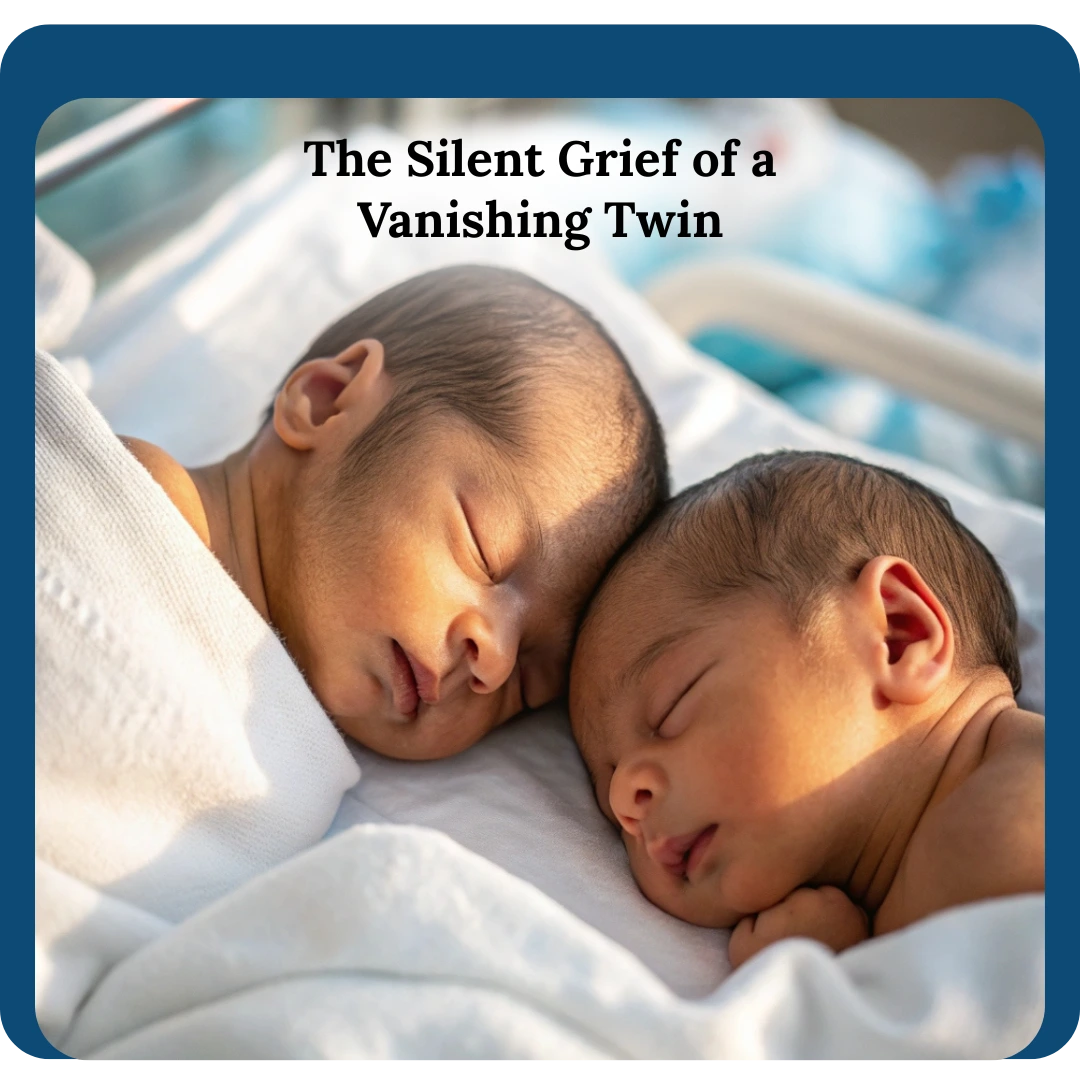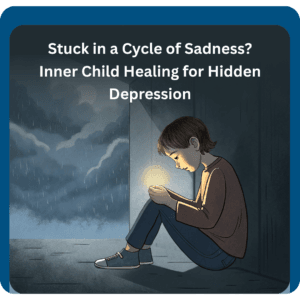The Silent Grief of the Vanishing Twin:How Unseen Loss Impacts Our Emotional Wellbeing?
Table of Contents
Vanishing Twin experiences may hold the key to understanding a strange sense of loneliness or a deep, persistent guilt for simply existing-despite being successful or surrounded by love. Have you ever felt emotions you couldn’t quite explain? These feelings may not just be psychological-they might be biological, ancestral, and systemic. One such phenomenon that sheds light on this hidden grief is the Vanishing Twin Syndrome.
Increasingly recognized in systemic and family constellation therapy, this syndrome refers to the experience where one of the twins or multiple embryos in the womb disappears during early pregnancy-often before the mother even knows she is carrying more than one child.
What is Vanishing Twin Syndrome?
According to scientific research, multiple conceptions from egg cells occur in 8 to 10 percent of all pregnancies. Many times, one of the embryos fails to implant or vanishes within the first few weeks of gestation. The surviving twin is usually unaware of the event consciously, but their subconscious and body remember.
How It Manifests Later in Life
Family Constellation facilitators often come across clients struggling with mysterious emotional patterns-chronic loneliness, guilt, fear of abandonment, or even migraines. Upon deeper exploration, these clients sometimes reveal early childhood illnesses, unexplained grief, or emotional numbness. The connection? A subconscious awareness of a lost twin.
For instance, in one documented case, a man named Greg, feeling stuck and unhappy in life, underwent a constellation session. A representative for his long-lost twin sibling was placed beside him. Greg instantly relaxed, and the “dead” sibling’s representative expressed happiness at finally being seen. This symbolic representation offered immense relief and healing.
The Emotional Burden
Survivors of vanishing twin syndrome often internalize subconscious beliefs such as:
- “I must earn my right to be here.”
- “I have to be perfect to compensate.”
- “I can’t fully enjoy life when someone else didn’t get the chance.”
These beliefs can manifest as: - Overachievement and perfectionism
- Deep-seated guilt and unworthiness
- Difficulty in forming secure attachments
- Repetitive burnout or self-sabotaging behaviors
The Silent Influence on Relationships and Life Choices
Many survivors of a Vanishing Twin unknowingly carry this early loss into their adult relationships and major life decisions. They may feel an inexplicable pull toward saving others, overgiving in friendships, or choosing emotionally unavailable partners-subconsciously replaying the loss dynamic. Some may even feel uncomfortable with success or visibility, as if thriving means betraying someone left behind. These hidden loyalties are not just psychological-they are embodied echoes of a bond that was never completed. Recognizing this early imprint helps individuals reclaim agency, establish healthier boundaries, and make life choices from a place of wholeness rather than unconscious grief.
Healing Through Awareness and Systemic Work
The first step to healing is awareness. Systemic approaches like Family Constellation Therapy allow the unconscious to be seen, acknowledged, and re-patterned. In another case, a woman who suffered chronic headaches experienced a breakthrough during rebirthing sessions. She connected her pain to a lost twin during an ectopic pregnancy. Upon honoring the soul of the twin and allowing the grief to surface, her symptoms subsided, and she began to reclaim her life with new clarity and compassion.
Why This Matters Today?
In a world that prioritizes productivity and appearances, many high-functioning individuals silently struggle with unresolved emotional grief. Vanishing Twin Syndrome provides a compassionate lens to understand these complex emotional landscapes. It reminds us that not all wounds are visible, and not all healing comes from fixing. Sometimes, it’s about remembering, honoring, and letting go.
Conclusion
If you or someone you know resonates with the symptoms described above, consider exploring systemic healing methods. Emotional resilience doesn’t come from denial, but from deeper connection-to self, to story, and to the souls we unknowingly carry within us. You are not alone in feeling alone. Sometimes, that grief belongs to a goodbye you never got to say.
Frequently Asked Questions (Faqs)
It’s when one twin or multiple fetuses in a pregnancy are lost early on, often without fully developing or being born, leaving the surviving twin with silent grief.
Because even early in the womb, loss can leave an emotional imprint. The surviving twin may sense absence, incompleteness, or have subconscious sorrow.
Yes. It may lead to feelings of being incomplete, difficulty with deep connections, survivor guilt, or searching for something missing.
Acknowledge the loss, allow emotions, find supportive spaces (therapy, groups), journaling, or creative expression can help. Also give yourself permission to feel.
Absolutely. Emotional grief is valid regardless of when the loss happened. You deserve space for healing.
Feeling a constant sense of longing, guilt, emotional numbness, identity confusion, or recurring dreams about a lost twin.
Healing is not linear. Some feel relief in a few months, others take years. It depends on personal experience, support and acceptance.
Yes. Sharing stories, being heard in a group or twin-loss community helps reduce isolation, provides understanding, and eases the burden.
Yes: rituals, memorials, naming the twin (even symbolically), creative arts or writing, quietly acknowledging the presence of what was lost can help.
Definitely. Many find wholeness by integrating the loss, appreciating their own journey, building connections, and acknowledging both sorrow and life.





Pingback: Unseen Loss: When Your Twin Vanishes Before Birth – Site Title
Reading about the silent grief of the vanishing twin feels like finally putting a name to a feeling I’ve carried for years—one I couldn’t fully understand or express. Your words have offered such clarity and compassion; it’s like someone reached in and gently held the invisible ache. I’m so grateful for these insights and the comforting practices you suggest. This post is truly a gift for anyone walking this subtle emotional path.
I just came across this post on the silent grief of the vanishing twin, and it honestly resonated deeply. I never realized that unexplained waves of loneliness or this lingering sense of loss could actually stem from such an unseen experience. Thank you for articulating this in such a gentle and validating way. The healing practices you share feel like a warm invitation—not only to acknowledge this grief, but to start gently nurturing the parts of ourselves that have been waiting to be heard.